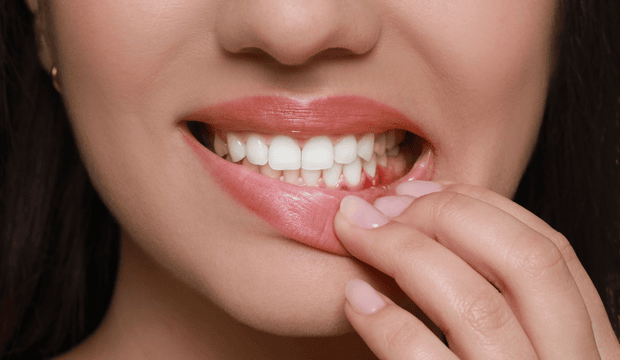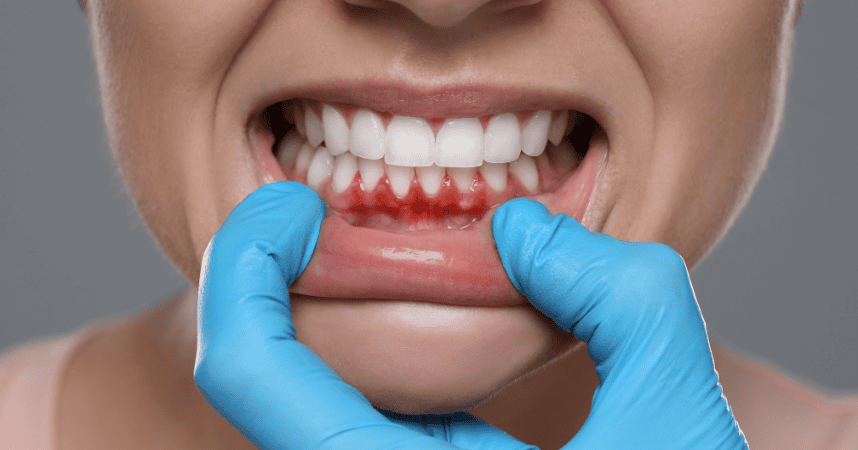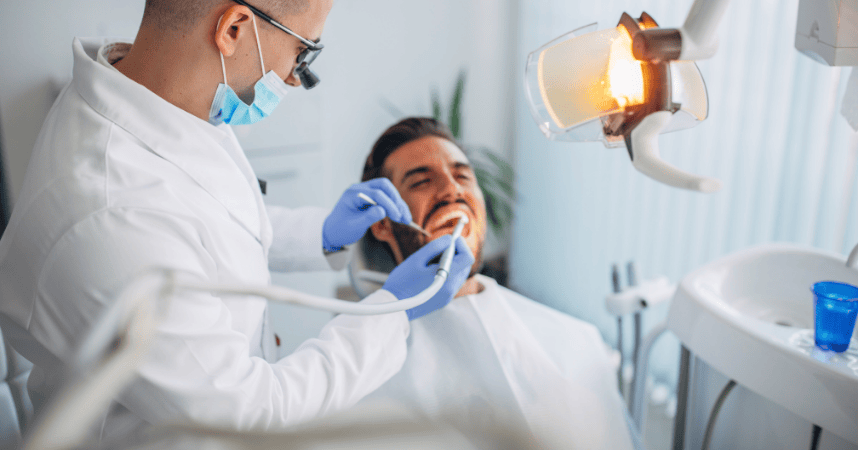- Mon - Fri: 8 AM - 5 PM.
- 1806 Professional Dr A, Sacramento, CA 95825

Spotting blood during your oral hygiene routine is a red flag that your gums may be inflamed or infected. While many people dismiss it as a minor issue, bleeding gums are often an early warning sign of a more serious oral health condition.
At Dental Krafts, we encourage patients to pay attention to such symptoms and take proactive steps toward healthier gums.
Healthy gums should never bleed during routine brushing or flossing. If you consistently notice blood after brushing or flossing, this may indicate gingivitis, which is the earliest stage of gum disease. Ignoring this sign could lead to periodontitis, a more advanced condition that may result in gum recession, bone damage, or even tooth loss.
Bleeding gums can also point to other issues like vitamin deficiencies, hormonal changes, or the side effects of medication. Identifying the underlying cause is essential for choosing the right treatment approach.

Here are some of the most frequent causes of bleeding gums:
Poor oral hygiene: When plaque is not removed regularly, it hardens into tartar, which irritates and inflames the gum tissue.
Aggressive brushing: Brushing with excessive pressure or using hard-bristled brushes can damage gum tissue.
Vitamin deficiencies: Low levels of vitamin C or vitamin K can lead to weakened gum tissue and increased bleeding.
Medications: Blood thinners and some other prescription drugs can increase the likelihood of gum bleeding.
Hormonal fluctuations: Pregnancy, menstruation, or menopause can make the gums more sensitive, increasing the likelihood of bleeding.
Systemic health conditions: Diseases like diabetes, leukemia, or other blood disorders can weaken your immune system and compromise gum health.
Bleeding gums are usually a warning sign and may come with additional symptoms that require attention. These may include:
1. Swelling or redness around the gumline
2. Persistent bad breath (halitosis)
3. Gums that pull away from the teeth
4. Tooth sensitivity or mobility
5. Pain while chewing
If you’re experiencing any combination of these symptoms, it’s essential to seek dental evaluation right away.
Bleeding gums can affect more than just your mouth. Numerous studies have linked gum disease to systemic conditions like heart disease, stroke, respiratory illness, and complications in diabetes. Poor oral health has also been associated with adverse pregnancy outcomes.
Harmful bacteria from gum infections can make their way into the bloodstream, potentially triggering chronic inflammation in other parts of the body. That’s why it’s vital not to ignore the early signs of gum trouble.
For more insights, the American Dental Association provides evidence-based guidance on gum health.

The most effective way to treat bleeding gums is by improving your daily oral care routine. Maintain good oral hygiene by brushing twice daily with a soft-bristled toothbrush and flossing gently to clear plaque and food particles from between your teeth.
At Dental Krafts, we often start with a professional dental cleaning, especially if there is tartar buildup. When gum disease is caught in its early stages, your dentist may recommend scaling and root planing—a deep cleaning procedure—to treat the condition effectively. This treatment removes bacteria from below the gumline and smooths tooth roots to help gums reattach.
In some cases, antimicrobial mouthwashes or topical treatments may be recommended to fight infection. For advanced cases, surgical options such as flap surgery or grafting procedures might be needed.
Alongside professional treatment, there are several ways to care for your gums at home:
Rinsing with warm saltwater can help calm irritated gums and support the healing process.
Eat a diet rich in leafy greens, citrus fruits, and vegetables to boost your intake of vitamins C and K.
Give up smoking, as tobacco use significantly increases the risk of gum disease and can lead to frequent gum bleeding.
If regular flossing feels too abrasive, consider using a water flosser as a gentler alternative for cleaning between your teeth.
Limit sugary snacks and acidic beverages, as they contribute to plaque formation.
Consistent habits go a long way in keeping your gums healthy.


Many parents worry when they notice bleeding gums in their children. In most cases, the cause is poor brushing habits or new braces, which can irritate the gums.
However, persistent gum bleeding in kids may also indicate nutritional deficiencies or juvenile gingivitis. Scheduling a dental visit with a pediatric specialist is the best way to ensure a thorough evaluation of your child’s oral health.
Discover some expert dental care tips for children to help your child build strong oral habits.
To maintain healthy gums, it’s advisable to see your dentist twice a year for regular check-ups and professional cleanings. If you’re already experiencing bleeding gums, more frequent visits might be necessary.
Regular dental visits allow your dentist to monitor any signs of gum disease and address them before they worsen. At Dental Krafts, we provide customized care plans based on your individual needs.

Final Thoughts
While bleeding gums might appear to be a minor concern, they could actually indicate deeper underlying oral health issues. Whether it’s due to poor brushing habits, health conditions, or nutrient deficiencies, the key to healthy gums lies in early detection and consistent care.
Quick Links
Services
Areas We Serve
Contact info
Open hours